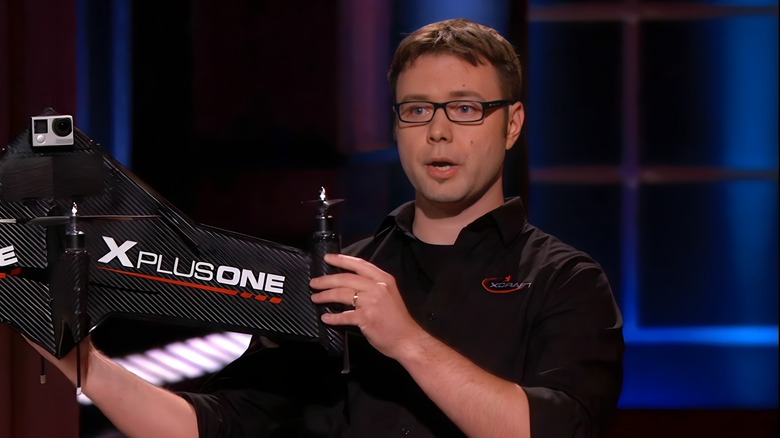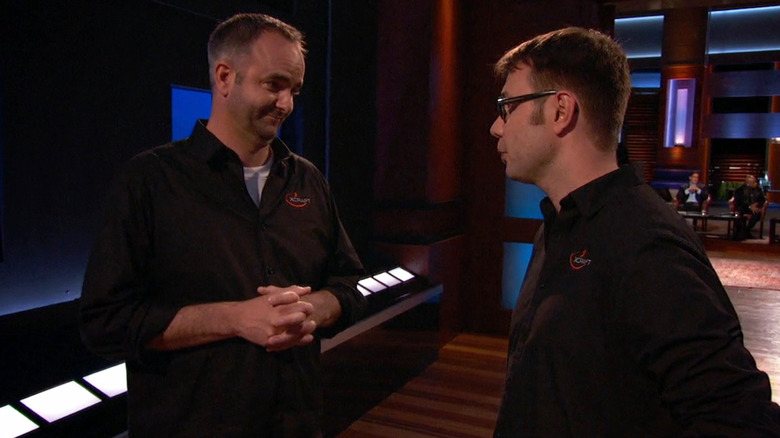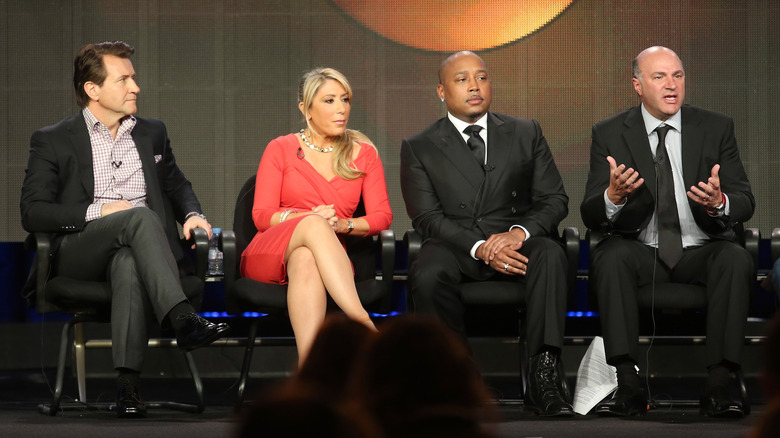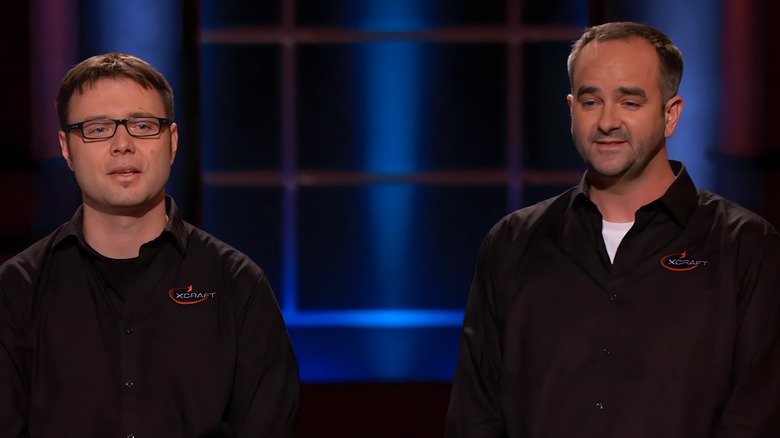Whatever Happened To XCraft After Shark Tank?
"Shark Tank" is oddly arresting. On paper, a show where the viewers essentially watch investment meetings shouldn't be interesting, but after 13 seasons, the show still rakes in millions of viewers every week. The show follows a simple format — real people behind real companies enter the "Shark Tank" (a glitzy boardroom where a rotating cast of five intimidating millionaires await) to pitch their small business ideas. From the elaborate showmanship to the high-stakes drama of securing the deal, not to mention that the best products eventually become commercially available, "Shark Tank" scratches every itch a TV show could hope to reach.
One of the most expensive deals on the show was xCraft, a recreational drone company that found its footing on the crowdfunding platform Kickstarter. They came to the Sharks with two products: a drone that could mimic airplane flight to achieve higher speeds and an apparatus that could transform a smartphone into a drone. They appeared on the fifth episode of Season 7, but a lot has changed since then.
Did xCraft leave with a deal?
For those who may not remember, xCraft had a jaw-dropping run on "Shark Tank." Coming in hot with a valuation of $2.5 million, seeking $500,000 for a 20% stake, they needed to convince the sharks that their company was worth the hefty price of entry. The duo behind xCraft came with a solid core product, pending patents, and an eagerness to license — an aspect that excited Kevin O'Leary in particular. He raised the valuation to $3 million, offering $750,000 for a 25% stake. Before xCraft could respond, Daymond John offered $1 million for the same stake.
Robert Herjavec and Lori Greiner made even more generous offers, with almost every shark clearly interested in the business. xCraft proposed a scenario wherein all five sharks backed the company jointly, a deal that, while rare, had occurred on the show previously. Predictably, the one hold out was the great white himself, Mark Cuban — the notoriously shrewd investor who always plays his cards close to the chest. xCraft's counter valuation of $10 million almost caused him and John to drop out completely. After scaling their new valuation for the group down to an agreeable $6 million, they aced Cuban's make-or-break questions and earned his support. As confirmed by Business Insider, they left with a deal from all five sharks, each agreeing to put up $300,000 in exchange for 5% of xCraft (the total deal was $1.5 million for 25%).
Did the sharks follow through on their investment?
Despite their impressive presentation and subsequent deal, xCraft didn't end up partnering with any of the sharks, according to SEOAves. Though the business proposals on the show are real, the finality of the deals is a bit performative. After the show ends, a "Shark Tank" business has really only just begun the journey of making a deal. As the parties go through the legal process of setting terms and opening their books, it's very common that either side will ultimately pull out. Multiple sharks have been upfront about this aspect of the show, with Herjavec himself estimating that, depending on the year, about 50% of deals actually end up closing, as per Showbiz CheatSheet.
This estimation mostly lines up with a 2016 study from Forbes, where they polled 74% of "Shark Tank" contestants from the first seven seasons. According to their findings, only 57% of deals ended up going through. This is largely attributed to deals changing after the show, with only 27% of deals remaining unchanged. Herjavec actually has the lowest solo-closing rate out of the six main sharks (including Barbara Cochran, who was not present for xCraft's pitch) at just over 43%. Most of the sharks closed about 50% of their deals in the first seven seasons, save Cuban who closed over 80% of his.
Did the company fall apart without the sharks?
This wasn't the end for xCraft, however — far from it. Even just an appearance on "Shark Tank" can transform a company overnight. As Inc. Magazine found in their 2018 study, 149 companies that appeared on the show reported remarkable growth after their segment aired, with 44 of those companies stating their revenue tripled after "Shark Tank." The investors of "Shark Tank" are well aware of this aspect of the show and are often wary of "gold diggers;" participants who have no intention of securing a deal with the sharks, instead using the TV appearance as a free advertisement.
According to SEOAves, xCraft is currently valued at $17 million, nearly double their highest estimate at the time of "Shark Tank." Their website reportedly received so much traffic after their episode aired that it briefly crashed. The company has expanded its offerings greatly, as well as its target client base. Their drones have now become tools of land surveyors and construction workers as well as the U.S. military and law enforcement, apparently for surveillance purposes (their website does not list any combat capabilities in their technology). The company is so focused on these fields, in fact, that xCraft no longer sells its creations directly to consumers.
They also appear to have mostly abandoned the "plane" aspect of their drones, with their main models seeming to operate with the standard quad-propellor design. The xCraft of today is certainly a far cry from the recreational drone company they initially pitched back in 2015.



